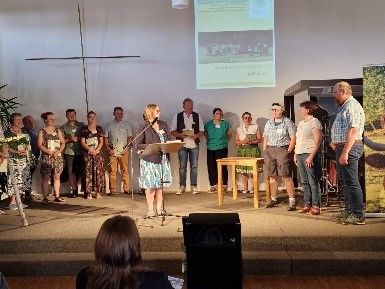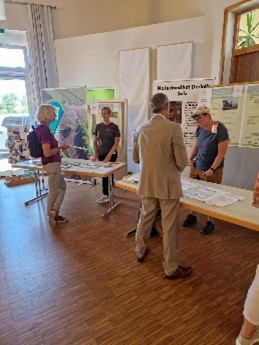What was the challenge/ problem addressed?
Due to the increasing demand for social services such as senior living, therapy with animals, support for dementia, outdoor work places for people with disabilities or farm kindergarten, the German state of Bavaria wants to make it easier for people to get started in social agriculture as an additional source of income and an alternative source of income and so as to meet the demand of these services and to satisfy their people, this will make people with disabilities and the old to feel accommodated and cared for within their environments as they could visit such farms and spend good time with the animals and the families. In regard to this, the main aim of the project is to develop ten innovative economically viable business models for farms in the field of social security. As well as creating a practical handbook „Business Models for Social Agriculture „which describes the basic success factors for the development and establishment of social farming services.
How did you solve the problem?
The development of business concepts for social farming as an instrument of diversification for farms.
Tthrough networking of agricultural business with social institutions,funding agencies and advice cooperation centers. Key figure for qualification concepts for agriculture and counselling with reference to state funding measures.Transfer of model projects for orientation as a decision making model.
What is innovative in your practical case?
As there was no economic data on social farming beforehand, a scientific evaluation was innovative in this respect. This also applies to some project ideas.
What are the success factors in solving the problem?
The success factor for this project was the realisation of 8 more projects in this project. As the project achieved its main aim,there are social farms which have been established and currently are employing people with disabilities giving them more insight and life intergration,they are able to work in the stables and earn some money.
Unexpected fails, if any
Lack of entrepreneurial skills and long-term health problems of the people responsible.
Lessons learned
It was recognised that the social idea and economic reality are not so easy to reconcile.
The evaluation of an outdoor workplace for people with disabilities showed that it can be a real win-win situation for the disabled people concerned and the farm.
It was realised that this type of farming intergrates people with disabilities into working life.
It was clearly seen that these workers with disabilities show consistent perseverance in the work for which they are responsible for and ask critical questions when need arises or when things are not so clear to them.
Entrepreneural skills are very key in any project for it to be successful and make use of the available resources in an ecomic way.
Division of tasks among actors and role determination at the beginning of the project and plan of activities makes work easier and enhance time management.It also enables all the actors to stay focus on the project goals and objectives.
What role does the advisor or advisory service play within the practical case?
The consulting team (consulting company, Landesantalt, lead partner) happened to be in close contact with the agricultural businesses and therefore provided appropriate support on site or via video conference in response to current developments in the project.
Can your approach be transferred and/or adapted for other innovation challenges and regions?
Yes.
For sharing the experience on the good practice, please contact Karl-Heiz Suhl (suhl.kh@gmail.com)


